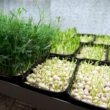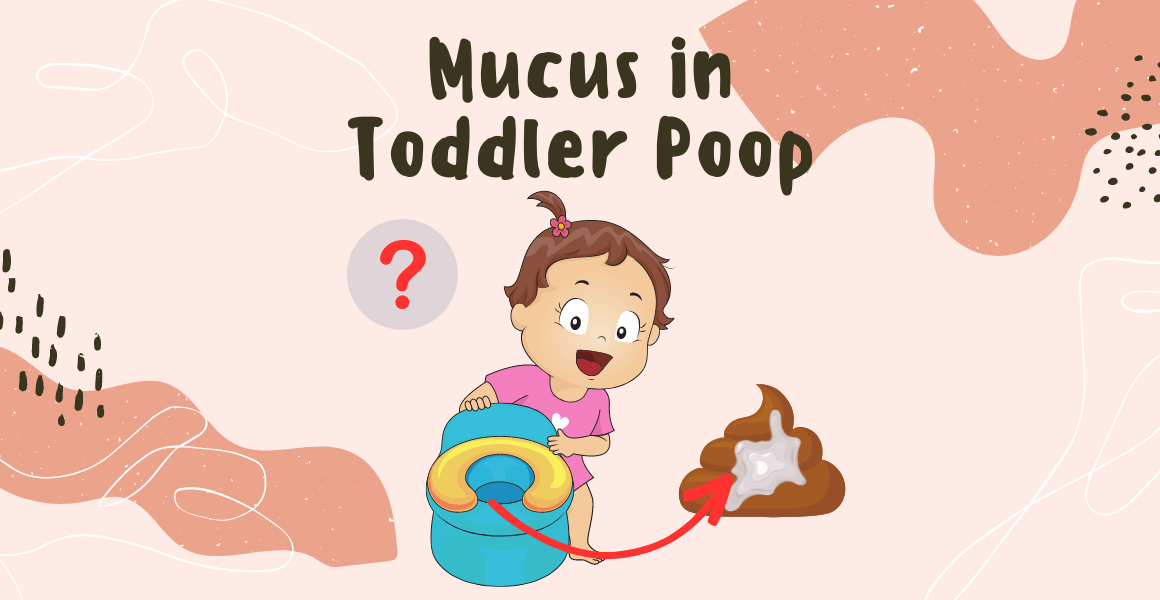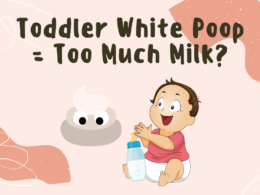Possible Causes
- Eating sugary or processed foods
- Sudden changes in diet
- Food allergy or intolerance
- Constipation
- Viral or bacterial infections
- Bowel disease
Is Mucus in Toddler Poop Normal?
Mucus is a common component of stool, but you may not always see it. It’s typically clear or white and slippery in texture. The intestines produce a small amount of mucus to keep the intestinal tract and anus lubricated and pass stools more easily.
You may notice mucus in your toddler’s poop if they’ve been eating more sugary or processed foods than usual. In small amounts, it’s normal and nothing to worry about. But if the stool is mucus-y and runny, it could be a sign of illness. Below, we’ll discuss the most common causes of mucus in toddler poop.
Common Causes of Mucus in Baby Stool: Diarrhea, Allergies & More
There are a number of reasons why large amounts of mucus may show up in your toddler’s poop. The most common include:
- Diarrhea: This is likely the most common cause of mucus in toddler poop. When mucus is accompanied by watery stool, it’s usually a sign that your child has diarrhea. Diarrhea can be caused by a number of things, including viral infections, bacteria, and food intolerance. It’s important that children with diarrhea drink a lot of fluids to prevent dehydration.
- Allergies: A food or milk allergy or intolerance can also cause mucus poop; toddlers can be allergic to certain foods, in which case their body will produce mucus to protect the intestines from the allergen.
- Dietary changes: Sudden changes in diet can also cause stool containing mucus. This includes changes in the mother’s diet if the baby is breastfed. Some children are also sensitive to formula changes.
- Infections: Viral and bacterial infections can cause mucus in the stool. Your child may also suffer from other symptoms, such as a fever or vomiting. One of the very well-known bacteria is Shigella.
- Constipation: When mucus is accompanied by hard, dry stool, it’s usually a sign of constipation. Constipation can be caused by a number of things, including a diet low in fiber, dehydration, and certain medical conditions.
- Other causes: In rare cases, the presence of mucus in poop can also be a sign of a more serious condition, such as Crohn’s disease, inflammatory bowel disease, intussusception or ulcerative colitis. If you’re concerned about mucus in your child’s stool, it’s always best to consult a doctor.
When to See a Doctor About Mucus in Baby Poop
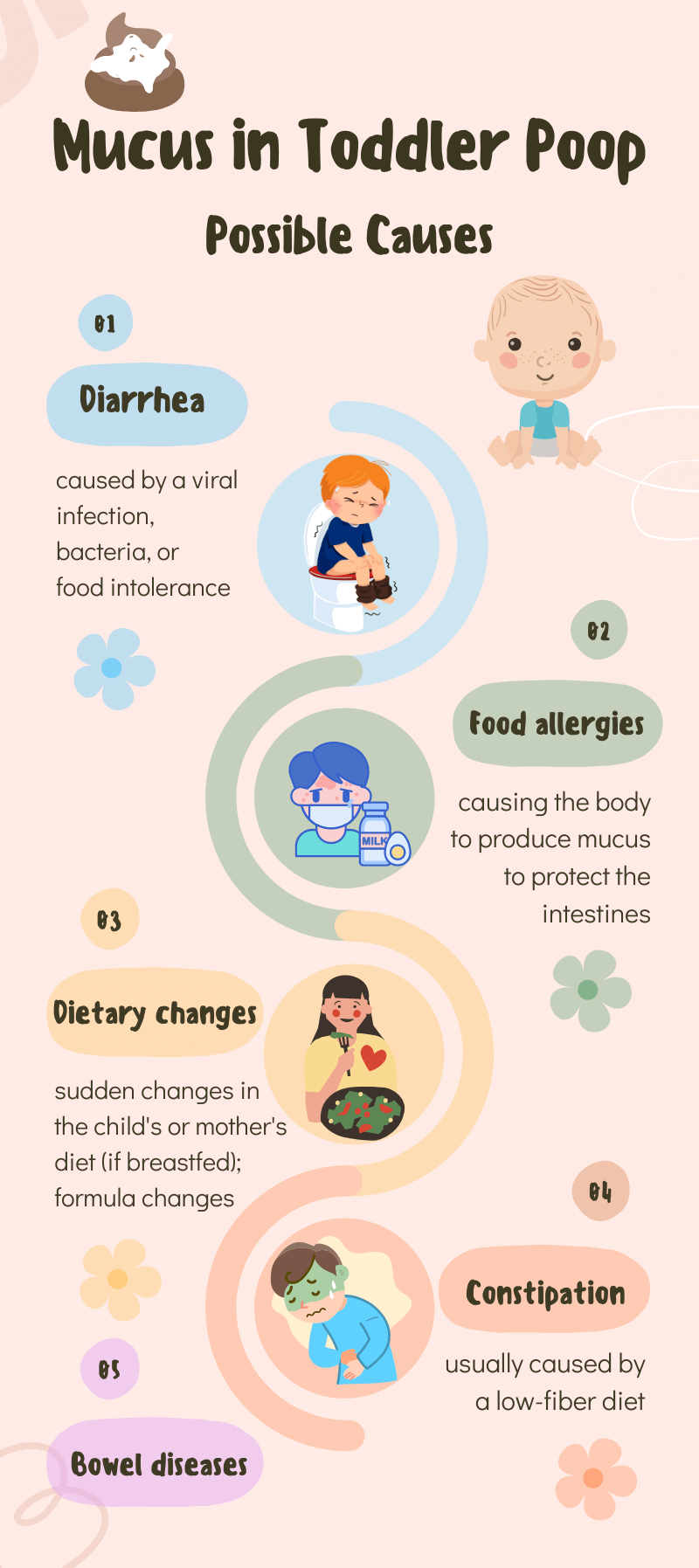
When it comes to mucus in poop, toddlers and their moms usually have nothing to worry about. However, if it’s accompanied by other changes in stool, it could be a sign of illness. Seek medical attention for your child if the mucus in their poop is:
- frequent;
- watery;
- runny;
- jelly-like;
- slimy;
- accompanied by other symptoms, such as a fever or vomiting; or
- if it lasts longer than a few days.
A pediatrician can help determine the cause of mucus in your child’s stool and provide the appropriate treatment.
Editor’s Note 💬
Be ready to answer any questions your doctor may have to assist in diagnosing your child’s illness. This may include the appearance of the mucus, its duration, and the presence of any additional symptoms. Also, if you can, collect a sample of the feces or take a picture to show the doctor. This will make the diagnosis and treatment process simpler for everyone.
Treating Mucus in Toddler Poop
The treatment for mucus in poop will depend on the underlying cause. If it’s due to a dietary change, the mucus should go away after a few bowel movements – your child’s digestive system will adjust. If it’s caused by an infection, the doctor may prescribe antibiotics. And if it’s due to constipation, the doctor may recommend a stool softener or other treatment.
Is It Mucus or Steatorrhea?
Mucus in stool is typically thin and clear or white. Steatorrhea, on the other hand, is stool that’s oily, fatty, or greasy. It’s usually yellow or tan in color and has a foul smell.
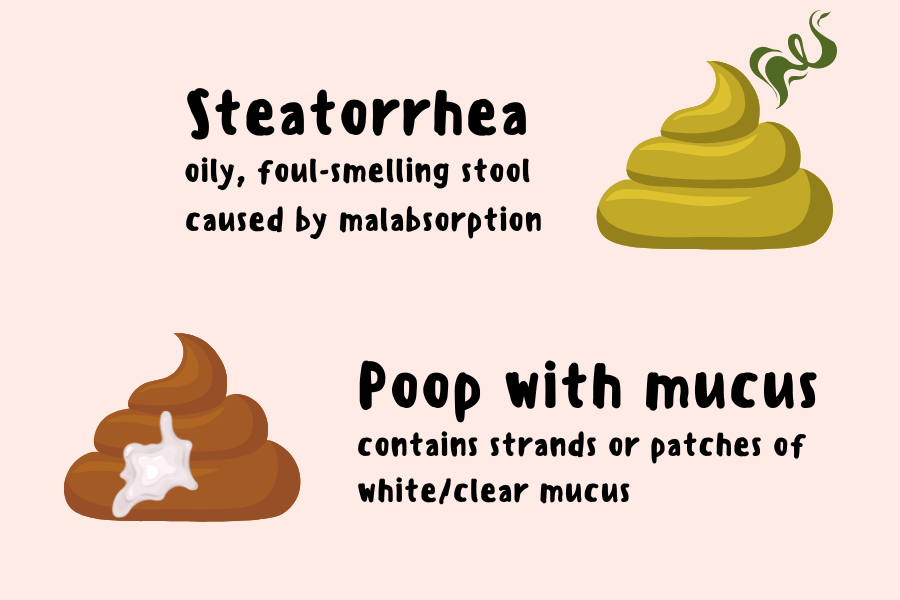
Steatorrhea is caused by the body’s inability to absorb fat. It can be a sign of a serious medical condition, such as celiac disease or cystic fibrosis. If you notice steatorrhea in your child’s stool, it’s important to see a doctor.
Conclusion
Mucus in toddler poop is usually nothing to worry about. However, if it’s accompanied by other changes in stool, it could be a sign of illness or something irritating the intestines. See a doctor if your child’s mucus-y stool is frequent, watery, runny, or if it lasts longer than a few days. A doctor can help determine the cause of mucus in your child’s stool and provide the appropriate treatment.
Frequently Asked Questions About Mucus Poop – Toddlers
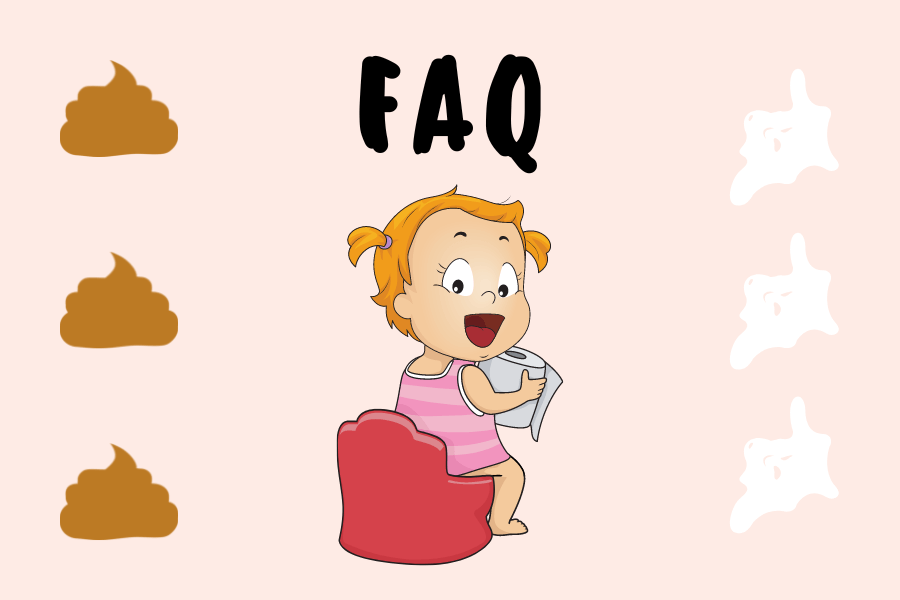
If you have a toddler, mucus poop can be a cause for concern. Here are answers to some frequently asked questions about this phenomenon that is common in children.
What Does Mucus in Baby Poop Look Like?
Mucus in baby poop is typically thin and clear or white. It may also be yellow or green, but it shouldn’t be red or bloody.
Can Teething Cause Mucus in Baby Poop?
When a baby is teething, it doesn’t itself cause mucus in their stool. However, teething can sometimes cause runny stools because your child is producing and swallowing more saliva. This can look similar to mucus in stool.
Mucus in Toddler Poop and a Fever – What Does It Mean?
If your child has green stool with mucus and a fever, it could be a sign of infection. See a doctor if your toddler has a fever, no matter what the other symptoms.
Can Reflux Cause Mucus in Baby Stool?
Yes, acid reflux can cause mucus in baby stool. If your child has mucus and other symptoms of GERD, such as fussiness, difficulty sleeping, and poor appetite, see a doctor.
Why Is There Mucus in My Toddler’s Stool After Starting Solids?
Mucus in stool after starting solids is usually nothing to worry about. It’s common for mucus to show up in poop when a child starts eating new foods, even if they have no food allergies. The mucus should go away on its own after a few days.
Can a Virus Cause Mucus in Stool?
Although unlikely, a virus could occasionally produce mucus in toddler poop. If it happens, it is usually accompanied by symptoms such as fever, vomiting, diarrhea, and others. Make an urgent phone contact to the doctor if your youngster exhibits these signs. They may need an antibiotic prescription or a viral test. Any virus should be treated as soon as possible.
Do you have more questions about bowel habits in toddlers? Leave a comment below!
Similar Posts:




